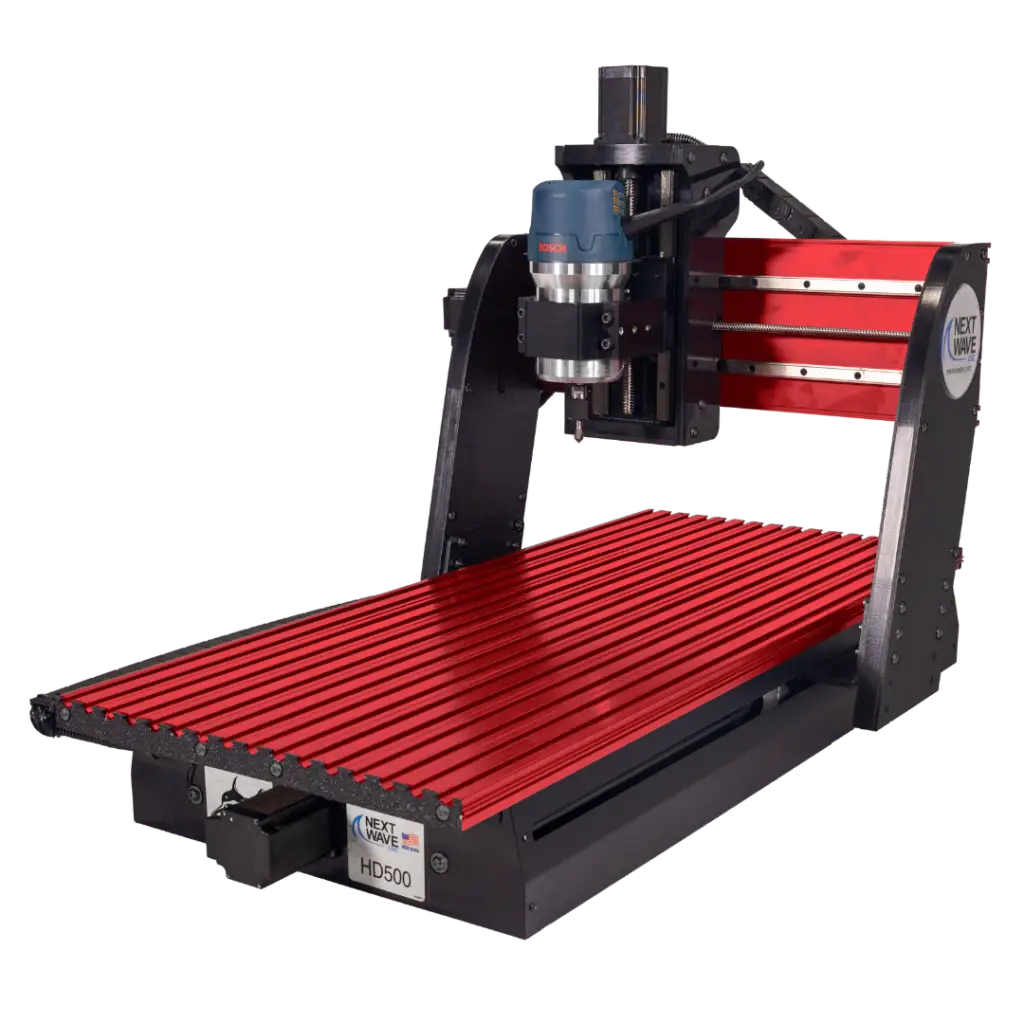
In the realm of small-format CNC machines, the quest for precision has traditionally led to the use of ball screws. However, a disruptive force is emerging with the rise of lead screws, challenging the conventional belief that ball screws are the undisputed kings of accuracy. Drawing inspiration from the efficiency of 3D printers, the advantages of lead screws in small-format CNCs are becoming increasingly evident, reshaping the landscape of precision engineering.
Ball screws are often designed with a trade-off between precision and friction. To achieve the high precision required in various applications, ball screws typically have a relatively higher level of friction. However, in an attempt to mitigate friction and enhance overall efficiency, manufacturers might opt to reduce the size of the balls within the screw mechanism. While this adjustment can indeed lower friction, it introduces a challenging dilemma — smaller balls may compromise the system’s overall accuracy. The delicate balance between minimizing friction and maintaining precision highlights the nuanced engineering decisions involved in the design of ball screw systems, particularly when aiming for optimal performance in small-format applications where lead screws excel.
- Precision Beyond Ball Screws:
At the heart of the small-format CNC revolution lies the quest for precision, and lead screws are proving to be a game-changer. Contrary to the conventional wisdom that ball screws are indispensable, lead screws demonstrate that precision can be achieved without relying on ball bearings. The simplicity of the lead screw design ensures a level of accuracy that challenges the very essence of the ball screw supremacy.
- Anti-Backlash Mechanism:
The cornerstone of the lead screw advantage lies in its anti-backlash mechanism. Small-format CNC machines, often tasked with intricate cutting and detailing, require precise positioning without any play or lost motion. Lead screws excel in this domain, eliminating backlash through a simple and effective mechanism that maintains optimal performance.
- Superior Performance at Lower Loads:
One of the standout features of lead screws is their optimal performance in the lower load spectrum. Small-format CNC applications often involve delicate operations and lighter cutting forces. In this scenario, lead screws outshine ball screws, which may struggle to perform optimally under such conditions. The reduced mechanical complexity of lead screws in comparison to ball screws ensures efficient operation under varying load conditions.
- Contamination Resistance:
Small-format CNC machines often operate in environments where contaminants like dust and debris pose a threat to precision machinery. Lead screws, engineered with reduced susceptibility to contamination, provide a robust solution. Unlike ball screws, where contaminants might compromise the efficiency of the mechanism, lead screws maintain their accuracy and reliability even in challenging environments.
- Reduced Maintenance and Longevity:
The anti-backlash mechanism not only ensures precision but also contributes to the longevity of lead screws. The reduced need for maintenance, compared to ball screws, makes lead screws an attractive proposition for small-format CNC machines. This advantage not only saves on operational costs but also enhances the overall efficiency and reliability of the CNC system.
- Cost-Effective Precision:
In the competitive world of manufacturing, cost-effectiveness is a crucial consideration. While ball screws come with a higher price tag, lead screws provide a cost-effective alternative without compromising on precision. Small-format CNC machines can benefit from the high-precision capabilities of lead screws without exceeding budget constraints.
Conclusion:
As the small-format CNC landscape evolves, the advantages of lead screws over ball screws become increasingly apparent. The anti-backlash mechanism, superior performance at lower loads, contamination resistance, reduced maintenance, and cost-effectiveness collectively position lead screws as the precision solution for modern CNC applications. The narrative of precision engineering is being rewritten, and lead screws are emerging as the unsung heroes in the quest for unparalleled accuracy in small-format CNC machines.
